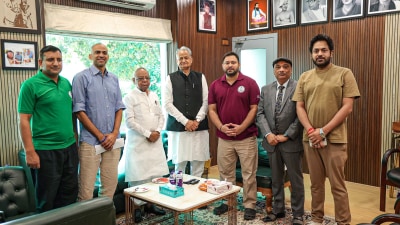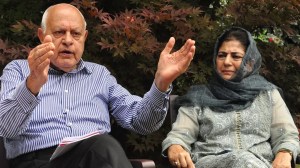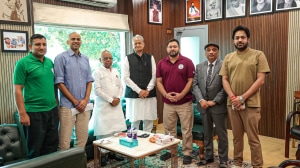Afghan gold rush: Tenders on way,India asks envoy to send report
India's Ambassador to Kabul Jayant Prasad has been asked to prepare an assessment report on the mining opportunities in Afghanistan....
India’s Ambassador to Kabul Jayant Prasad has been asked to prepare an assessment report on the mining opportunities in Afghanistan,following a US study that the war-torn country could have reserves worth US $1 trillion. With China already in the race for the mineral stakes,New Delhi doesnt want to be left behind.
Foreign Secretary Nirupama Rao is learnt to have instructed Prasad to prepare a detailed SWOT (Strength-Weakness-Opportunities-Threat) analysis last week,before she left for Islamabad for the SAARC meet.
The Geological Survey of India is also hosting Afghan geologists and officials in Jaipur next month,where the subject is expected to come up.
Afghanistan reportedly wants Indian companies to tap five key minerals: coal,iron ore,copper,cobalt and gold.
Tenders are likely to be issued later this year or early next year,and have the potential to completely transform Afghanistans $11 billion economy.
According to sources,Indias efforts got momentum from the fact that Afghanistan Mining Minister Wahidullah Shahrani and his Indian counterpart B K Handique met in New Delhi just a day after the Pentagon the headquarters of the US Defense Department made the disclosure about Afghanistans untapped mineral deposits.
At a roadshow in London last week,Shahrani announced that a tender would be issued in September for the Hajigak iron ore deposit,located in the Bamiyan province,130 km west of Kabul. It is billed as the largest unexploited iron ore deposit in Asia. The tender for the Badakhstan gold deposit is expected later this year and for the Balkap copper deposit early next year.
What has India worried,however,are security issues,apart from the fact that China already has a head start. The state-owned China Metallurgical Group (CMG) in 2008 won a $4-billion bid to develop Afghanistans giant Aynak copper mine. As part of the deal,they are building a road network,transnational railway lines and other infrastructure.
Most of the untapped mineral deposits are located close to the Pakistan border,an area controlled by the Taliban. Afghanistan has set up a 1,500-strong unit to provide security for a new copper mine and has promised to do the same for other mining firms,but India is aware that the security risks cant be taken lightly.
Besides,to access gold,silver,copper and other deposits,miners have to tunnel down,blast the minerals out by the ton,carry the same to the surface,and ground them for processing. All this involves investment of several billion dollars for a single mining operation. In mountainous Afghanistan,which has no railroad link to the world or adequate electric power infrastructure,these factors have to be taken into account.
Also,if New Delhi is able to set up the mining infrastructure inside Afghanistan,they would have to transport the products either through Pakistan or Iran. While India will almost certainly not get access through Pakistan,the Iran option is a difficult one as most of the deposits are concentrated near the border with Pakistan.





- 01
- 02
- 03
- 04
- 05


























